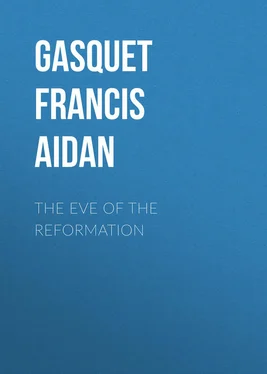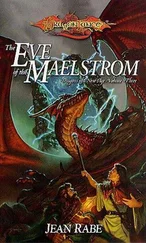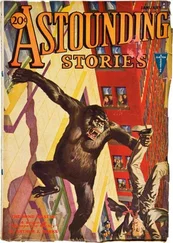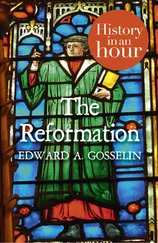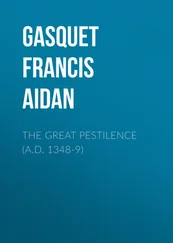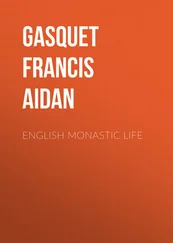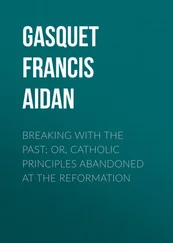Francis Gasquet - The Eve of the Reformation
Здесь есть возможность читать онлайн «Francis Gasquet - The Eve of the Reformation» — ознакомительный отрывок электронной книги совершенно бесплатно, а после прочтения отрывка купить полную версию. В некоторых случаях можно слушать аудио, скачать через торрент в формате fb2 и присутствует краткое содержание. Жанр: foreign_antique, foreign_prose, на английском языке. Описание произведения, (предисловие) а так же отзывы посетителей доступны на портале библиотеки ЛибКат.
- Название:The Eve of the Reformation
- Автор:
- Жанр:
- Год:неизвестен
- ISBN:нет данных
- Рейтинг книги:3 / 5. Голосов: 1
-
Избранное:Добавить в избранное
- Отзывы:
-
Ваша оценка:
- 60
- 1
- 2
- 3
- 4
- 5
The Eve of the Reformation: краткое содержание, описание и аннотация
Предлагаем к чтению аннотацию, описание, краткое содержание или предисловие (зависит от того, что написал сам автор книги «The Eve of the Reformation»). Если вы не нашли необходимую информацию о книге — напишите в комментариях, мы постараемся отыскать её.
The Eve of the Reformation — читать онлайн ознакомительный отрывок
Ниже представлен текст книги, разбитый по страницам. Система сохранения места последней прочитанной страницы, позволяет с удобством читать онлайн бесплатно книгу «The Eve of the Reformation», без необходимости каждый раз заново искать на чём Вы остановились. Поставьте закладку, и сможете в любой момент перейти на страницу, на которой закончили чтение.
Интервал:
Закладка:
On the assumption that the only possible attitude of English churchmen on the eve of the great religious changes would be one of uncompromising hostility to learning and letters, many have come to regard the one, not as inseparably connected with the other, but the secular as the outcome of the religious movement. The undisguised opposition of the clergy to the “New Learning” is spoken of as sufficient proof of the Church’s dislike of learning in general, and its determination to check the nation’s aspirations to profit by the general classical revival. This assumption is based upon a complete misapprehension as to what was then the meaning of the term “New Learning.” It was in no sense connected with the revival of letters, or with what is now understood by learning and culture; but it was in the Reformation days a well-recognised expression used to denote the novel religious teachings of Luther and his followers. 3 3 The use of the expression “New Learning” as meaning the revival of letters is now so common that any instance of it may seem superfluous. Green, for example, in his History of the English People , vol. ii. constantly speaks of it. Thus (p. 81), “Erasmus embodied for the Teutonic peoples the quickening influence of the New Learning during the long scholar-life which began at Paris and ended amidst sorrow at Basle.” Again (p. 84), “the group of scholars who represented the New Learning in England.” Again (p. 86), “On the universities the influence of the New Learning was like a passing from death to life.” Again (p. 125), “As yet the New Learning, though scared by Luther’s intemperate language, had steadily backed him in his struggle.”
Uncompromising hostility to such novelties, no doubt, marked the religious attitude of many, who were at the same time the most strenuous advocates of the renaissance of letters. This is so obvious in the works of the period, that were it not for the common misuse of the expression at the present day, and for the fact that opposition to the “New Learning” is assumed on all hands to represent hostility to letters, rather than to novel teachings in religious matters, there would be no need to furnish examples of its real use in the period in question. As it is, some instances taken from the works of that time become almost a necessity, if we would understand the true position of many of the chief actors at this period of our history.
Roger Edgworth, a preacher, for instance, after speaking of those who “so arrogantly glory in their learning, had by study in the English Bible, and in these seditious English books that have been sent over from our English runagates now abiding with Luther in Saxony,” praises the simple-hearted faith that was accepted unquestioned by all “before this wicked ‘New Learning’ arose in Saxony and came over into England amongst us.” 4 4 Sermons. London: Robert Caly, 1557, p. 36.
From the preface of The Praier and Complaynte of the Ploweman , dated February 1531, it is equally clear that the expression “New Learning” was then understood only of religious teaching. Like the Scribes and Pharisees in the time of Our Lord, the author says, the bishops and priests are calling out: “What ‘New Learning’ is it? These fellows teach new learning: these are they that trouble all the world with their new learning?.. Even now after the same manner, our holy bishops with all their ragman’s roll are of the same sort… They defame, slander, and persecute the word and the preachers and followers of it, with the selfsame names, calling it ‘New Learning’ and them ‘new masters.’” 5 5 The Praier and Complaynte of the Ploweman unto Christ , sig. Aij.
The same meaning was popularly attached to the words even after the close of the reign of Henry VIII. A book published in King Edward’s reign, to instruct the people “concerning the king’s majesty’s proceedings in the communion,” bears the title, The olde Faith of Great Brittayne and the new learning of England . It is, of course, true, that the author sets himself to show that the reformed doctrines were the old teachings of the Christian Church, and that, when St. Gregory sent St. Augustine over into England, “the new learning was brought into this realm, of which we see much yet remaining in the Church at the present day.” 6 6 R. V. The olde Faith of Great Brittayne, &c. – The style of the book may be judged by the following passages: – “How say you (O ye popish bishops and priests which maintain Austen’s dampnable ceremonies) – For truly so long as ye say masse and lift the bread and wine above your heads, giving the people to understand your mass to be available for the quick and the dead, ye deny the Lord that bought you; therefore let the mass go again to Rome, with all Austen’s trinkets, and cleave to the Lord’s Supper”… Again: – “Gentle reader: It is not unknown what an occasion of sclander divers have taken in that the king’s majesty hath with his honourable council gone about to alter and take away the abuse of the communion used in the mass… The ignorant and unlearned esteem the same abuse, called the mass, to be the principal point of Christianity, to whom the altering thereof appears very strange… Our popish priests still do abuse the Lord’s Supper or Communion, calling it still a new name of Missa or Mass.” The author strongly objects to those like Bishop Gardiner and Dr. Smythe who have written in defence of the old doctrine of the English Church on the Blessed Sacrament: “Yea, even the mass, which is a derogation of Christ’s blood. For Christ left the sacrament of his body and blood in bread and wine to be eaten and drunk in remembrance of his death, and not to be looked upon as the Israelites did the brazen serpent… Paul saith not, as often as the priest lifts the bread and wine above his shaven crown, for the papists to gaze at.” All this, as “the New Learning” brought over to England by St. Augustine of Canterbury, the author would send back to Rome from whence it came.
But this fact rather emphasises than in any way obscures the common understanding of the expression “New Learning,” since the whole intent of the author is to show that the upholders of the old ecclesiastical system were the real maintainers of a “New Learning” brought from Rome by St. Augustine, and not the Lutherans. The same appears equally clearly in a work by Urbanus Regius, which was translated and published by William Turner in 1537, and called A comparison betwene the old learnynge and the newe . As the translator says at the beginning —
“Some ther be that do defye
All that is newe and ever do crye
The olde is better, away with the new
Because it is false, and the olde is true.
Let them this booke reade and beholde,
For it preferreth the learning most olde.”
As the author of the previous volume quoted, so Urbanus Regius compares the exclamation of the Jews against our Lord: “What new learning is this?” with the objection, “What is this new doctrine?” made by the Catholics against the novel religious teaching of Luther and his followers. “This,” they say, “is the new doctrine lately devised and furnished in the shops and workhouses of heretics. Let us abide still in our old faith… Wherefore,” continues the author, “I, doing the office of Christian brother, have made a comparison between the ‘New Learning’ and the olden, whereby, dear brother, you may easily know whether we are called worthily or unworthily the preachers of the ‘New Learning.’ For so did they call us of late.” He then proceeds to compare under various headings what he again and again calls “the New Learning” and “the Old Learning.” For example, according to the former, people are taught that the Sacraments bring grace to the soul; according to the latter, faith alone is needful. According to the former, Christ is present wholly under each kind of bread and wine, the mass is a sacrifice for the living and the dead, and “oblation is made in the person of the whole church”; according to the latter, the Supper is a memorial only of Christ’s death, “and not a sacrifice, but a remembrance of the sacrifice that was once offered up on the cross,” and that “all oblations except that of our Lord are vain and void.” 7 7 Urbanus Regius, A comparison betwene the old learnynge and the newe , translated by William Turner. Southwark: Nicholson, 1537, sig. Aij to Cvij.
Интервал:
Закладка:
Похожие книги на «The Eve of the Reformation»
Представляем Вашему вниманию похожие книги на «The Eve of the Reformation» списком для выбора. Мы отобрали схожую по названию и смыслу литературу в надежде предоставить читателям больше вариантов отыскать новые, интересные, ещё непрочитанные произведения.
Обсуждение, отзывы о книге «The Eve of the Reformation» и просто собственные мнения читателей. Оставьте ваши комментарии, напишите, что Вы думаете о произведении, его смысле или главных героях. Укажите что конкретно понравилось, а что нет, и почему Вы так считаете.
